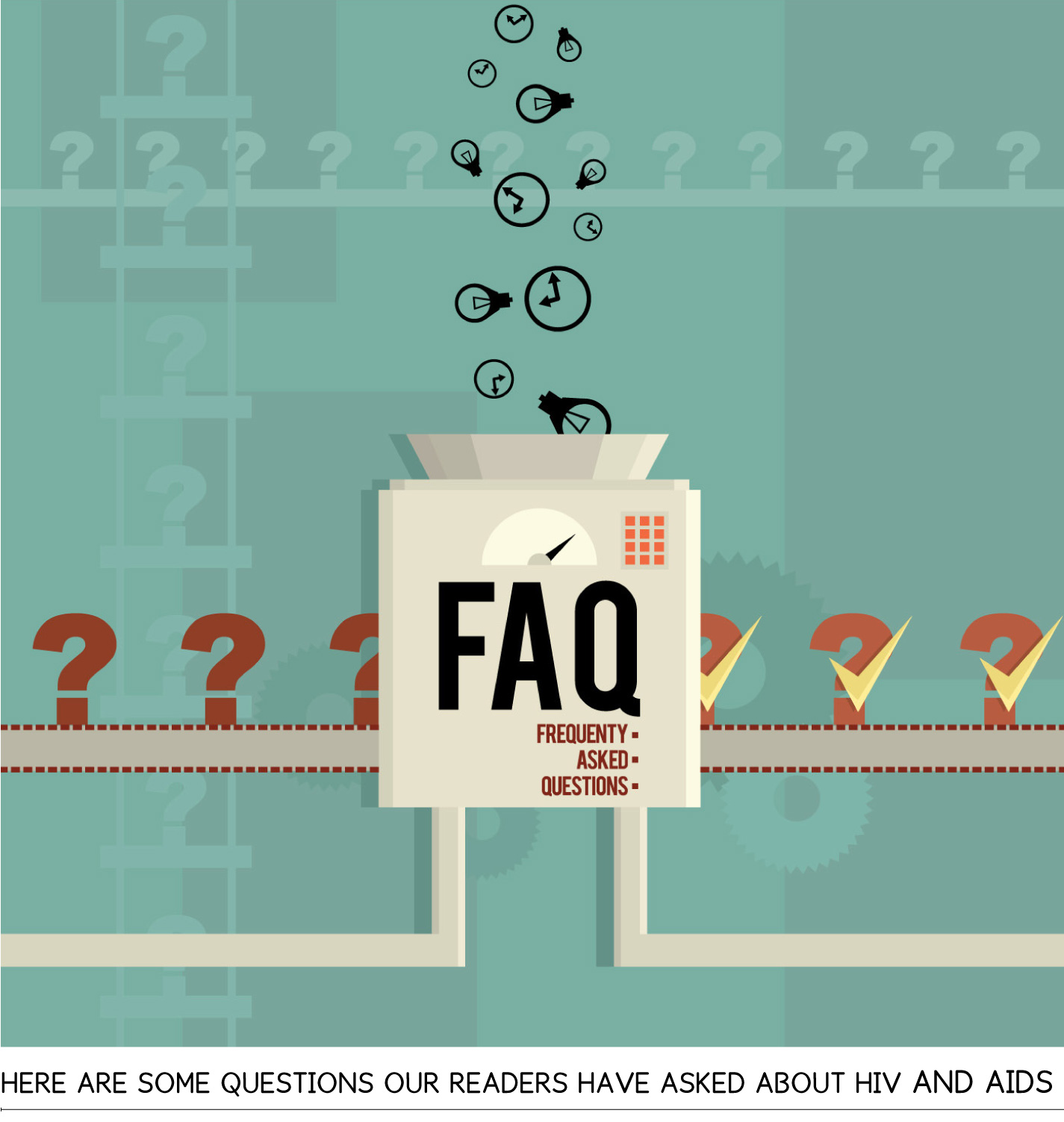HOME
PAST DIGITAL ISSUES
HIV/AIDS HOTLINES
HIV 101
POSITIVE PROFILES
ASO SPOTLIGHT
RECENT ARTICLES
HOW TO PAY FOR HIV TREATMENT AND MEDICATIONS
ADAP CRITERIA AND FORMULARIES
ASO LISTINGS
REVIEW OF HIV MEDICATIONS
2018 HIV/AIDS FUNDRAISING ACTIVITIES & EVENTS
ABOUT HIV POSITIVE! MAGAZINE
LINKS
SUBSCRIBE
CONTACT US
ADVERTISER INFORMATION

Answers to Frequently Asked Questions about Living with HIV
Q: Why are you not supposed to use Vaseline with a condom?
A: Most condoms are made of latex. Viruses, including HIV, cannot pass through latex. Oil-based lubricants like Vaseline, salad oil and hand lotion can damage a latex condom, causing tears and leaks that let HIV through. Use a water-based lubricant like K-Y Jelly instead.
Make sure the condom you use is fresh – check the expiration date. Open the package carefully. Never re-use a condom, and don’t use one that has been subjected to extreme temperatures.
Q: Can HIV be transmitted by oral sex?
A: Yes, but the risk is very low. There have been very few documented cases of transmission of HIV solely through oral sex.
Saliva (spit) is not one of the bodily fluids that transmits HIV. HIV is transmitted by blood, semen, and vaginal fluid. So the risk of transmission during oral sex is greater if you or your partner have open cuts or sores – the sores associated with syphilis or herpes, for example – in the mouth or on your genitals.
Unlike HIV, some other sexually transmitted diseases are easily transmitted by oral sex. It’s always best to protect yourself by using a condom.
Q: Is there any connection between HIV and other sexually transmitted diseases?
A: Yes, there definitely is. If you are HIV-positive and you also have another sexually transmitted disease (STD), you are three to five times more likely to infect someone than if you do not. An STD also makes an HIV-negative person more vulnerable to HIV infection. If the STD causes breaks in the skin or sores, those become a pathway for HIV to enter your body. Even if the STD does not cause breaks in the skin, the infection can trigger an immune response in the genital area that makes HIV transmission more likely.
Q: Can HIV survive outside the body?
A: Yes, but not for very long. The Centers for Disease Control and Prevention (CDC) conducted a test using blood with a very high concentration of HIV. The amount of infectious virus declined rapidly as the blood sample dried. Basically, by the time the blood was completely dry, the HIV was dead.
Q: My partner and I are both HIV-positive. Can we have unprotected sex?
A: If you do, you run the risk of what is called “superinfection.” That’s when you become infected with a second strain of HIV, which may be harder to control, or resistant to different medications than the one you have now. And, of course, you put your partner at risk for superinfection, too.
Superinfection is not very common, but it does happen. Why risk it? And, of course, by having unprotected sex you are at risk of catching other sexually transmitted diseases.
Q: I’m pregnant. Should I get an HIV test?
A: Yes, absolutely. If it turns out that you are HIV-positive, there are steps your doctor can take to reduce the chances that you pass the virus along to your baby.
Do you have a question you would like to see answered in a future issue of HIV Positive! magazine? Please email it to: amuse@phpubs.com
Copyright 2018, Positive Health Publications, Inc.
This magazine is intended to enhance your relationship with your doctor - not replace it! Medical treatments and products should always be discussed with a licensed physician who has experience treating HIV and AIDS!